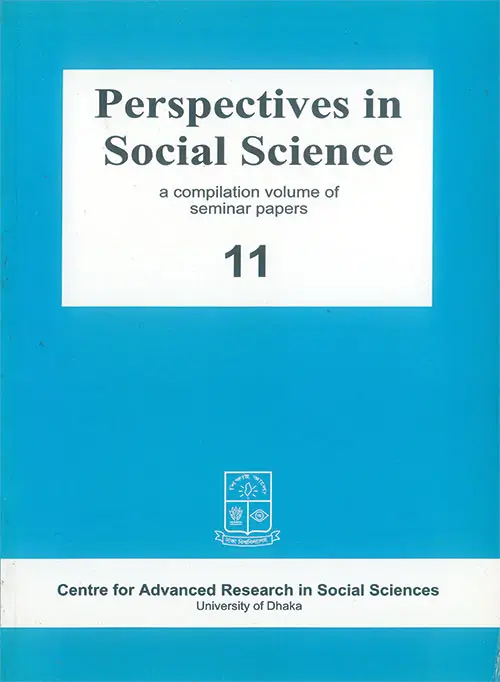
Perspectives in Social Science
Volume 11 May 2015
Perspectives in Social Science
Bangladesh's Process of Democratization: A Rustowian View
Perspectives in Social Science
Volume 11 May 2015
DOI:
ISSN :
Abstract
This paper attempts to enquire into the possibility of studying Bangladesh's process of democratization through Rustowian model. Intellectual father of transitology. Dankwart Alexander Rustow (1970) has attempted to create a model of democratization sufficiently flexible to serve as a foundation for the study of a wide range of empirical cases. The model that Rustow devises illustrates a sequence of four phases-national unity as background condition, preparatory phase, decision phase and habituation phase. The national unity of the people of Bangladesh has been demonstrated in the electoral results of 1970's election. That was actually formative phase for democratization in the country. Among many other effects, the election of 1970's had helped to forge "national unity" for democracy. This national unity led to the struggle for democracy against the military rule of Pakistan and ultimately turned into the war of liberation for Bangladesh in 1971. After independence, the making of constitution in 1972 and holding of first parliamentary general elections of independent Bangladesh in 1973 could be cited as significant achievements for democratization. This was actually the preparatory phase of democratization in the country. During the preparatory phase many things went wrong. The period between 1975 and 1990 could be termed as decision phase'. The decisions in favour of democracy results form the interplay of a number of forces. Since precise terms must be negotiated and heavy risks with regard to the future taken, a small circle of leaders is likely to play a disproportionate role. The essence of democracy is the habit of dissension and conciliation over ever-changing issues and amidst ever-changing alignments. During the habituation phase the country witnessed many things like accepting and rejecting the provision of caretaker government for general elections and issuance of national unity cards and holding of four parliamentary general election from 1991 to 2009. In terms of Rustwian point of view, the habituation phase remains 'inconclusive.
